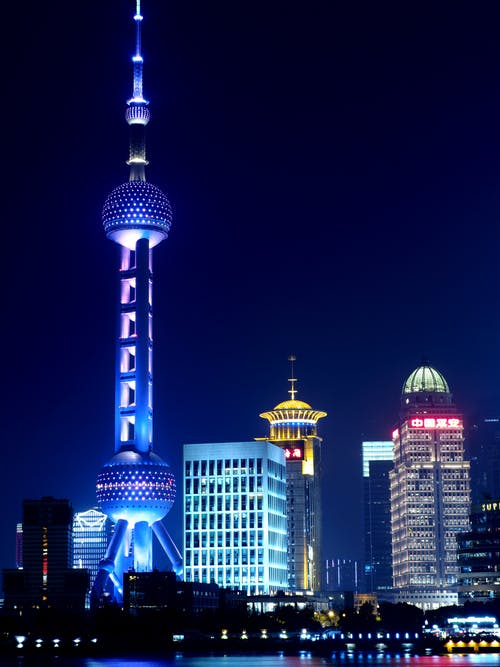‘Being Affluent, One Drinks Wine’: Wine Counterfeiting in Mainland China | International Journal for Crime, Justice and Social Democracy https://www.crimejusticejournal.com/article/view/1086 …
Posted: Jan 21, 2019

An international legal expert has urged more effective anti-counterfeiting measures to ensure fake winemakers in countries like China do not keep costing the global wine industry trillions of dollars in lost business.
Northumbria University Professor of Law Anqi Shen believes estimates that the global wine counterfeiting industry will be worth A$4.3 trillion ($3.1 trillion) by the year 2022.
Chinese viticulture, which was reported to have produced 14,000 bottles of fake Penfolds wine in November last year, has become the world’s second-biggest wine consumer market following the United States, according to Fairfax Media.
According to an event page for one of Shen’s seminars on the topic, “clearly, the wine industry is lucrative.”
“China’s huge wine market attracts local and global counterfeiters who are aggressively profiting from the making and selling of fake Australian and European wines.”
Shen, formerly a police officer in China and a practising lawyer in a Nanjing law firm, warns that there are not only intellectual property issues associated with fake wines but also health risks.
Sometimes counterfeit winemakers will use a cheap substitute for ethanol, including nail polish remover, windscreen cleaning fluid, methanol, and isopropanol, which is used in antifreeze. While these types of alcohol can produce a similar buzz for the consumer, it can, at the very least, lead to nausea, vomiting, abdominal pain, drowsiness, and dizziness. In more serious cases, consumption can cause kidney or liver problems, or even put someone in a coma. Methanol can lead to permanent blindness.
“[There are] public health concerns with regard to dangerous counterfeit goods such as fake wines,” the event page said.
The Australian Coalition government has announced that it will establish a new Smart Trade Mark digital platform under the federal agency IP Australia to help Australian businesses protect their goods from imitation products in overseas markets.
In collaboration with Shaw Vineyard Estate winery in Murrumbateman, New South Wales, the pilot project aims to support their supply chain into South East Asia and ensure overseas customers purchase quality Australian-made products.
“Projects like Smart Trade Mark are important ways to stop fake products eroding the integrity of Australian brands,” Federal Minister for Industry, Science, and Technology Karen Andrews said in a press release. “By applying a Smart Trade Mark to Australian products, consumers and business could be able to instantly check it’s a registered Australian trademark and ensure it’s not counterfeit.
“Access to this information overseas is currently limited, so the potential is very exciting.”
Shen believes exercising tighter regulatory control over the counterfeiting industry and discouraging fake wine producers from illegal conduct will also help address the issue.
Australia’s viticulture industry welcomed the new rules that give greater protections to reputable wine exporters.
According to Wine Australia, the government-funded statutory authority will have the power to block the approval of shipments of Australian products that cannot be legally sold in the destination country, especially if it breaks intellectual property-related laws. Exporters will also lose the flexibility to export on behalf of companies or individuals that are ineligible for a valid export licence.
“These new regulations will extend Wine Australia’s power to do more to protect Australian wine’s reputation overseas by ensuring the bona fides of potential and existing exporters,” Wine Australia Chief Executive Officer Andreas Clark said in a press release. “Unfortunately, it’s a fact of life that copycats and counterfeiters can move in when they can leverage somebody else’s good reputation to make a buck–left unchecked the damage accrues not just to an individual brand but to the reputation of the nation targeted and its other brands.”
By Richard Szabo
January 21, 2019
Source: Theepochtimes.com
Go-Wine's mission is to organize food and beverage information and make it universally accessible and beneficial. These are the benefits of sharing your article in Go-Wine.com


The Wine Thief Bistro & Specialty Wines is a locally owned small business in downtown Frankfort, IL offering world class wines in a relaxed, casual gathering spot for friends and family. Offering world class virtual tastings and touchless carryout.
https://www.twtwineclub.com/aboutus
Go-Wine 25 Great Wineries in US selection prioritizes quality, value and availability.
www.go-wine.com/great-wineries-in-america
Tasting wine is a nice experience, but visiting the places in which wine is made is a magic moment. Available in New York City for touchless pickup.